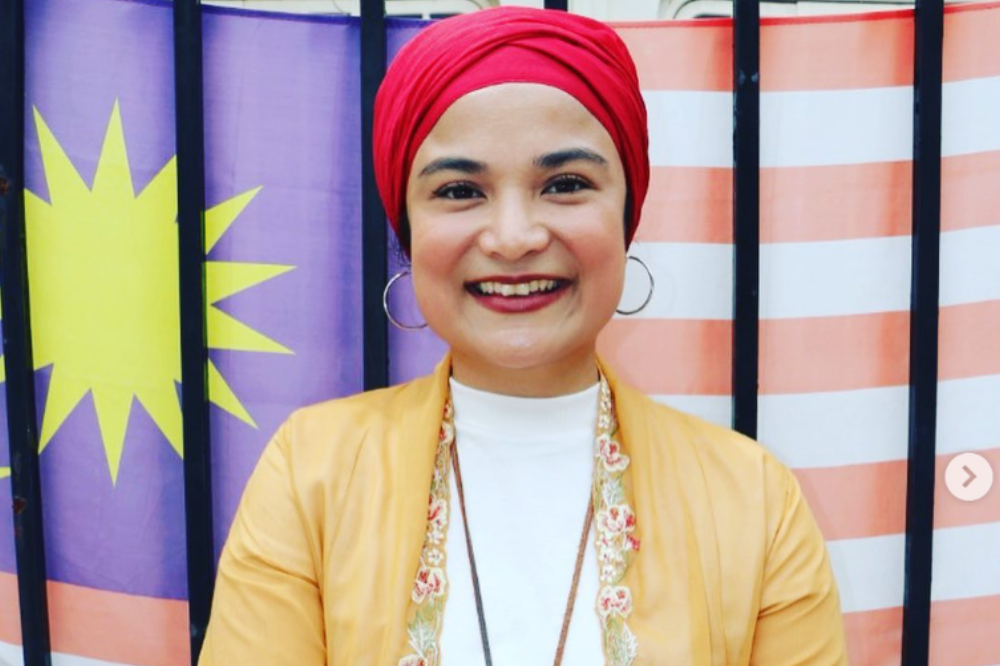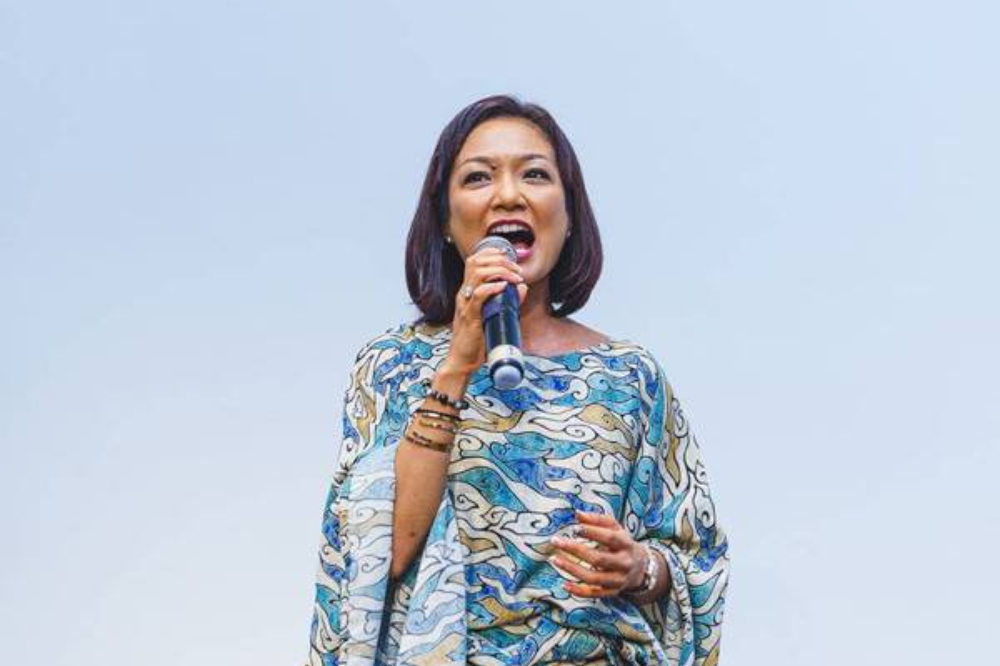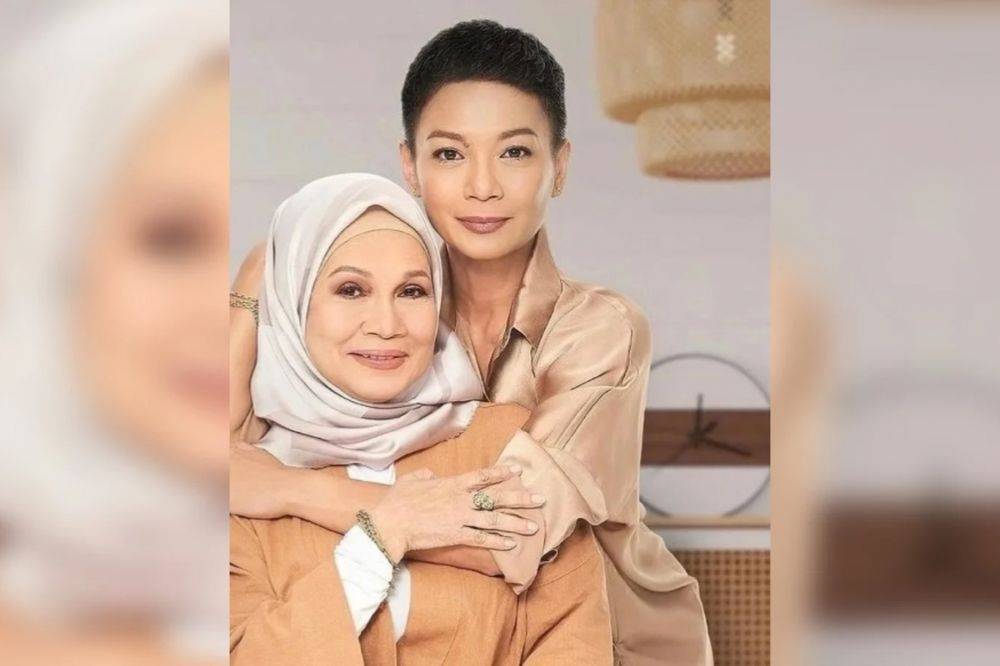Heartfelt journeys of cancer survivors redefining strength and family bonds
These survivors face an array of unique challenges, yet many manage to carve out a semblance of normalcy.

In the hustle and bustle of daily life, it’s easy for those of us living ‘normal’ lives to overlook a different reality—one filled with cancer survivors bravely battling the specter of death each day, often only able to breathe a sigh of relief once their grueling treatments and chemotherapy sessions come to an end.
These survivors face an array of unique challenges, yet many manage to carve out a semblance of normalcy. Some even find themselves transformed by their experiences, evolving into new versions of themselves that make it impossible to return to their pre-diagnosis ways.
Among those who have opened up about their journeys are Hiba Abdul Rahman, 34, who bravely confronted stage two breast cancer; Dr Kartini Kamalul Ariffin, 42, who battled stage one breast cancer; and Salamiah Hassan, 73, whose poignant story is shared through the eyes of her daughter, Atilia Haron.
Each of these women embodies resilience and courage, shining a light on the strength found in survival.
LEARNING ABOUT GRIEF - HIBA

A cancer survivor for nine years where the coming February would conclude ten years, Hiba surprised the audiences during her talk at a breast cancer awareness event with the amount of positivity she endured along with the painful moments not everyone could imagine.
At the age of 25, she got diagnosed with stage two breast cancer where she highlighted the journey of mainly redefining grief in her life.
Initially dismissed as a simple lump, it wasn’t until bleeding from her nipple - a symptom incongruous with explanation for breastfeeding women (Hiba does not have children) - that the true nature of the lump was finally recofnised.
The fight against cancer wasn’t limited to just the disease itself. Brutal side effects from the treatment forced Hiba to endure three laparatomy surgeries and a medication changed that caused such severe issues, she had to leave the workforce. These weren’t the only challenges - Hiba currently manages rheumatoid arthritis, entometrial hyperplasia and a canal cholesteatoma in her ear.
Having to endure the pain of losing a breast to it, she said that these brought tremendous changes in her life not just physically but also spiritually.
“Grief is not just when somebody passes on, it’s when you lose a part of yourself (through breast removal), the transition from being a normal person to someone with cancer, looking back at who I used to be and making way for who I am going to become is also what I call as grief.
“I believe having only one breast still makes me a woman," she said.
Chemotherapy being one of the main causes for her pain, she further said that her main strength came from a stable familial support system along with a medical team that felt like family.
To cope with the pain of chemotherapy, she seeked solace in board games, using them as a welcome distraction from her challenges.
However, she describes experiencing “chemo brain,” a fog that leaves her struggling to enjoy everyday activities like watching television or playing video games (she was once an avid online gamer). This shift has forced her to adapt, finding joy in the simplicity of board games as she navigates this difficult chapter of her life.
“Board games have helped me a lot in improving my memory and level of understanding which not enjoying normal hobbies stopped,” she said.
Further adding to the unconditional support she got, she noted her family and friends as well as the medical team played a significant role.
“My friends and family made me forget that I was in treatment,” Hiba said.
She recounted a heart-wrenching conversation with her older sister, revealing the deep sense of helplessness that washed over her each time she contemplated Hiba's difficult situation as the youngest in the family.
“She would say that she felt helpless when being unable to ease my pain,” she told the audience.
Hiba said that though she is the youngest, she dislikes being considered spoiled and likes to spoil others instead such as her sister’s children. Her having cancer changed that but Hiba remains strong against the currents of challenges that made the normal become abnormal.
She said that being a fan of cosplays also helped her cope during the treatment phases, where she would dress up as Harry Potter characters at some hospital visits to “jazz it up.”
She brought some fun into her bald look by adding henna art to her head, spending six hours getting it all done. It was a creative way to spice things up and turn her situation into something a little more playful!
“My buttock hurts from all the sitting down and apparently, your head is a large surface area,” she said humorously.
“One time, I forgot to bring my Baymax plushie with me to my chemotherapy treatment, then the medical staff who knew me and even my house told me to go get it knowing that it was my coping mechanism,” she added.
She said that those little fun moments along with her support system, helped her tremendously in going through something as difficult as cancer.
She also said that she adopted the mindset of taking one day at a time.
She also encouraged the audience to consider the challenges faced by medical staff, who endure their own struggles while caring for cancer patients. “They’re also going through a lot, be nice to them,” Hiba said.
CANCER FREE
Being nine years cancer-free now, she is known to advocate for early detection.
“I’m the living proof of it. If I didn’t get my early detection and treatment, I would not have made it to today,” she said.
She emphasised the importance of valuing time, where surviving over time gives cancer patients confidence to go through another day. Being in such a dire situation also made her learn to ask for help where it used to be difficult to do so.
“Even as the youngest child, I don’t usually ask for help, rather, I offer it and I love doing it especially when it comes to my siblings’ kids. Now that I got sick I can’t help them anymore and have to do things for myself,” she said.
She expressed heartfelt gratitude for her caregivers, who provided her with unwavering support, even as she noticed changes within her family during her illness.
“We’ve gone a lot closer because of this journey,” she said.
She further noted positive changes in the aspect of mental health where she has learnt to love herself more and be more confident, especially in public speaking since she has been sharing her journey with a lot of people in the public.
“I used to hate public speaking, I would get cold feet and then run away, and I’m here talking about my journey and I have cancer to be thankful for that,” she said.
A MOTHER'S LOVE

Kartini shared her stage one cancer journey, which began in February 2023, revealing that she initially kept her diagnosis hidden from her two children to protect them from heartbreak. She admitted that this was the most challenging aspect of her battle.
However, she soon realized she had underestimated her children, who handled the news better than expected.
“It was challenging to tell them that I had cancer, but we oftentimes underestimate our children because they could take so much more.
“I cried but they kept giving support,” she said, further saying that she was amazed at how resilient and strong they are.
She resembled hospital visits with previous family outings she previously had before having cancer such as going to shopping malls, having family picnics at the beach or going to a theme park.
“During hospital visits on the weekends for my radiotherapy, the oncologist’s room became the lounge area for my family,” she said.
She further said that little things like that became so meaningful for a cancer patient on their healing journey.
Kartini highlighted how many older adults with cancer often keep their diagnosis hidden from their children to avoid becoming a burden. She stressed the need to normalise conversations around illness, urging families to break the stigma and not see such news as a weight on their shoulders.
She recalled a message sent to her by an an Instagram follower shared a heartbreaking story about her mother who concealed her cancer diagnosis until she passed away. Left in the dark, the children now live with the heavy guilt of not being able to support their late mother through her battle.
FROM A DAUGHTER'S POINT OF VIEW

Agreeing with Kartini on kids’ resilience, Atilia managed to cope with knowing that her mother whom she only became closer to after the diagnosis, had breast cancer at stage one. Her mother, Salamiah Hassan, felt a lump on her left breast while showering in 1981 and mammogram results showed that she had breast cancer.

Cancer-free now, Atilia said that the journey of being the kid of a cancer patient was not as easy. “The relationship (with my mother) was strained from then on since she wanted to hide the news but I knew and pretended not to know,” Atilia said while adding that she had been educating herself about her mother’s diagnosis since then.
Now advocating for the cause of cancer’s cure, she has been conducting free yoga lessons for a healthy lifestyle straying from the possibility of having cancer and making donations to healthcare centres and cancer associations such as one at Kuala Lumpur Hospital.
She eventually found a way to tell her that she knew and their connection grew stronger ever since.
“I get that parents don’t want to burden their children, but look how I turned out. That made me a stronger person,” she said.
Further adding that she also deems support as important, she highlighted Hiba’s efforts in realising it while also receiving external support.
“The little things you do for positivity can also come from a positive surrounding,” she noted.
Atilia also acknowledged that cancer patients could be cranky in their moods, saying that it was most obvious in her mother. “It’s important to give her space since having cancer is difficult for someone who has been working so hard to raise us,” she said.
Atilia also admitted that she felt angry that her mother initially felt the need to hide the news from her.
“There are a lot of medical advancements, people shouldn’t be scared of sharing about it anymore,” she said.
Over time, she learnt that her mother is such a strong person. “Now, I’m always with her, I taje her on holidays where it’s just the two of us and we even borrow clothes from each other since we are the same size.
“We’ve been having a lot of fun together and I know that she’s starting over especially after her husband passed away. I want to be there for her as much as I can for now and it’s just like two single girls ruling the world,” Atilia said.
Despite the calamities that cancer patients go through, their survival stories live on in the hearts and minds of those going through the same thing.











